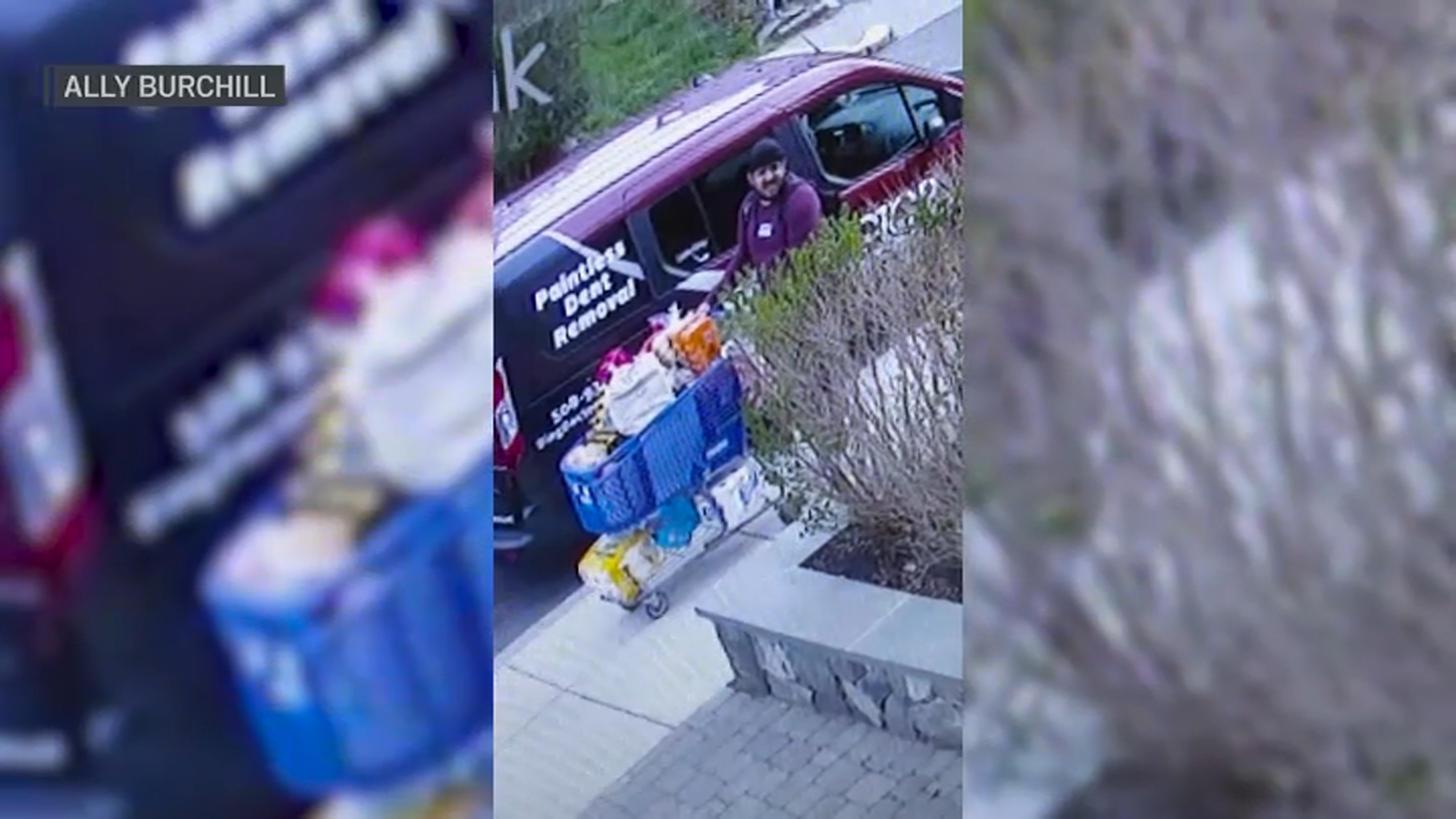(NECN: Jack Thurston, Rutland, Vt.) - As many food pantries have, the Rutland Community Cupboard in Rutland, Vt. has felt the impact of the recession and the slow recovery from it. "There's a great need," volunteer Linda Bania said, pointing out how busy the organization has been in recent years, and how many of the group’s shelves have empty spaces Bania said could often use more food to fill them.
Now, some help is coming from a farm in nearby Poultney. At the Dutchess Farm, Sam Dixon of the Rutland Area Farm & Food Link was visiting on his once-a-week trip to gather food that otherwise would have gone uneaten. "We're trying to capture as much as we can," Dixon said.
He was gleaning. While people have for centuries revisited fields to collect produce missed in initial harvest, gleaning now refers to a growing movement in contemporary agriculture to turn wasted produce into healthy meals. "If we weren't here right now, this would just stay in the ground and get plowed in," Dixon said, holding up a handful of carrots. “And this helps the farmers too. Many of them don’t want all this biomass remaining in their soil after the end of the season.”
Dixon said many vegetables grown on farms are never picked, explaining farmers may plant extra crops to buffer against floods or insects, and they don't end up needing them. Other veggies may appear too small or be too plentiful to bring to market, Dixon explained. "You wash these up, get the dirt off them; they're beautiful carrots," Dixon said.
He estimated RAFFL will deliver about 15,000 pounds of gleaned food this year. All of it otherwise would have been ignored, Dixon noted. The food goes to 16 agencies around Rutland County to serve low-income residents, Dixon said. He added that more volunteers are needed to keep the trend growing and the haul increasing.
Angela Smith-Dieng of Hunger Free Vermont said one in eight people in the Green Mountain State doesn't always get enough food. "I think gleaning is a great idea," she observed.
Smith-Dieng said she expects more people will turn to food shelves when a federal decrease in food stamp benefits hits the nation Nov. 1, cutting $36 a month for families of four. That decrease is due to the expiration of the 2009 Federal Recovery Act, which was passed to stimulate the economy and save jobs during the recession, according to the Vt. Dept. of Children and Families.
Local
Smith-Dieng said gleaning certainly can help address the need. "It's not going to be the only solution, but I think it's an important part of the package," she said. "It's taking food that's there and available and making it accessible to people in need. It's one piece of a great big puzzle in terms of solving the problem of hunger."
Salvation Farms, a nearly 10-year-old Morrisville, Vt.-based organization, advocates for better management of agricultural surplus, and an embrace of locally-grown foods. Executive director Theresa Snow estimated as many as 2-million pounds of Vermont-grown produce go to waste every year. “I think there’s a lot of awakening as to how wasteful our food system is,” Snow said. “When the need is so great, why are we wasting food?”
Snow said across the whole food system, including meals served at restaurants and packaged food bought at grocery stores, some estimates hold that 40-50 percent of edible material is scraped off plates into garbage cans or otherwise not eaten.
Snow added that farmers in Vermont seem receptive to knowledgeable gleaners visiting their land to remove surplus produce. “Farmers know they have an important social mission beyond just the bottom line, and gleaning is part of that,” Snow told New England Cable News. “It’s very empowering. We have such a strong food movement in Vermont, I think that’s why gleaning is picking up momentum here.”
Wendy Casey picked up some gleaned lettuce from the Rutland Community Cupboard Wednesday, and told NECN her social security checks alone often aren't enough to buy farm-fresh veggies. "This is a real treat," she said of her fresh salad greens. "You can only have so many canned vegetables, which I love anyway, but this is what we really want to eat."
And now more Vermonters like her can do just that, thanks to this still-developing approach of harnessing more of the harvest to combat hunger.



